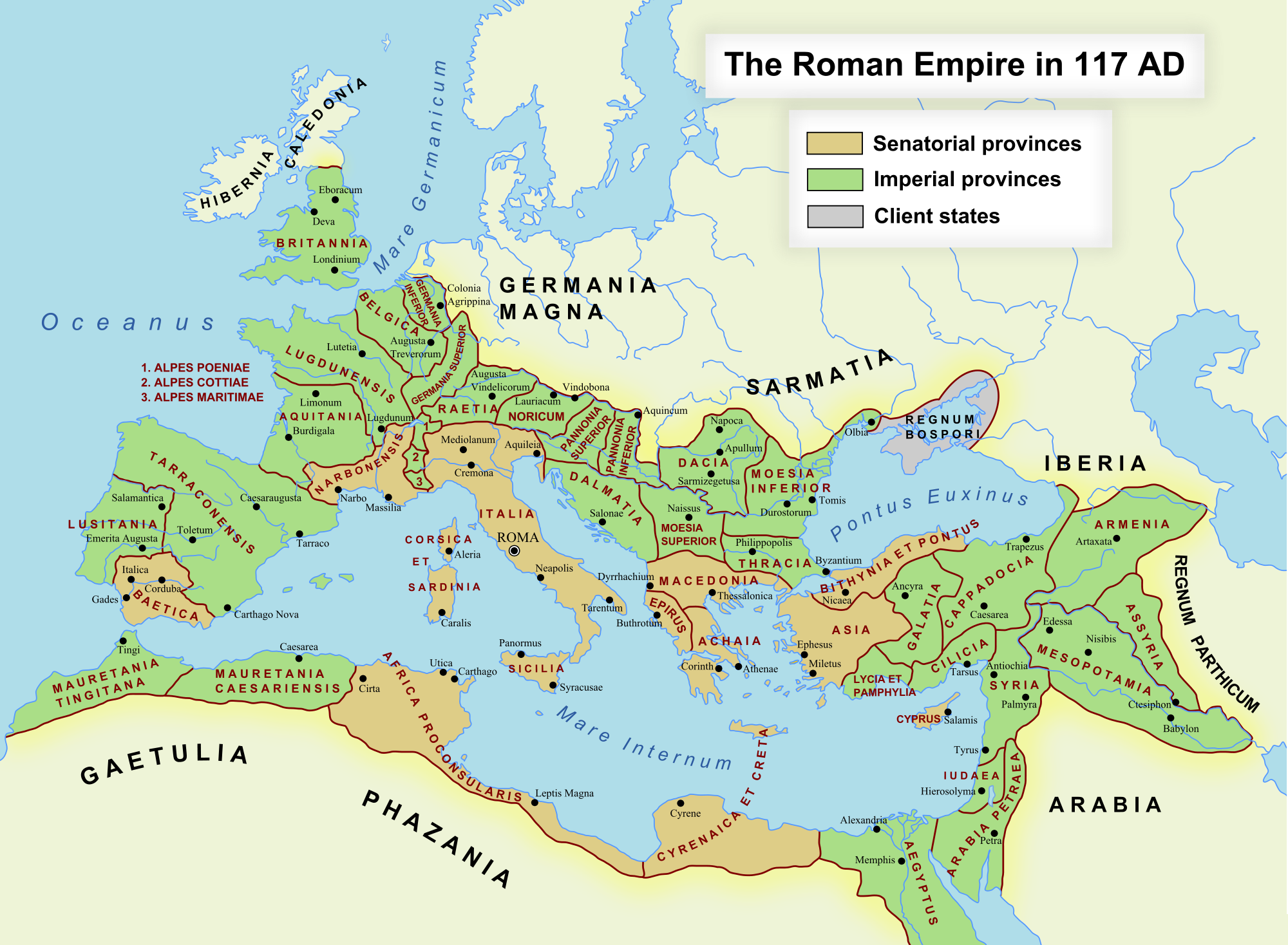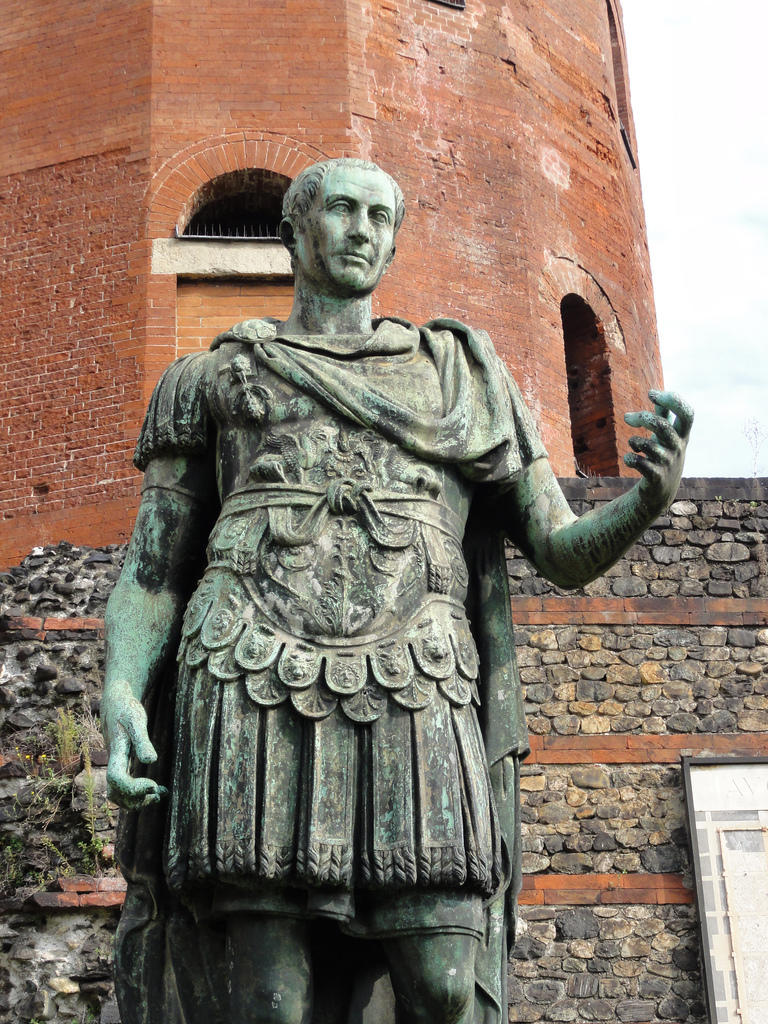The Latin language was the first language to be born in Europe and to have been used commonly throughout the continent. Despite Latin being a dead language today, it makes no doubts for historians that the Latin language, during the hegemony of the Roman Empire, was comparable to English today, as an international language.
The Roman Empire which extended from the Portuguese shores of the Atlantic Ocean to the banks of the Euphrates in what is today Iran, had made Latin the official language of any newly conquered land, or province.

Who Spoke Latin?
Latin was originally spoken by the Latins, an ancient people who inhabited the region of Latium, now known as Lazio, located in central Italy. This area encompasses the lower Tiber River, which flows through Rome, the capital city of Italy.
As the Roman Republic expanded its territories through military conquests and colonization, Latin began to spread beyond its original geographic boundaries. It became the dominant language in the Italian Peninsula and throughout the vast expanse of the Roman Empire, which at its height included territories across Europe, North Africa, and parts of the Middle East.
Latin's influence was profound. It served as the foundation for the Romance languages, including Italian, French, Spanish, Portuguese, and Romanian, which evolved from it over the centuries. Latin also played a crucial role in the fields of law, science, and religion, particularly within the Catholic Church, where it was used as the liturgical language for many centuries.
Latin was spoken by the ancient Romans, who dominated much of Europe and the Mediterranean world from the 1st century BC to the 5th century AD. Latin was the language of the Roman Empire, and it was spoken by soldiers, scholars, merchants, and politicians throughout the Roman world.
After the fall of the Roman Empire, Latin continued to be used as a language of scholarship and the Catholic Church, and it remained an important language of learning and communication in Europe until the 18th century. Today, Latin is still taught and studied in many schools and universities around the world as a language of history, literature, and culture.
Where Was Latin Spoken?
Latin was originally spoken in ancient Rome, which was located in central Italy. As the Roman Empire expanded, Latin became the dominant language throughout much of Europe and the Mediterranean world. Latin was spoken by soldiers, scholars, merchants, and politicians throughout the Roman Empire, which at its height covered much of modern-day Europe, as well as parts of North Africa and the Middle East.
After the fall of the Roman Empire, Latin continued to be used as a language of scholarship and the Catholic Church, and it remained an important language of learning and communication in Europe until the 18th century.

Most people know that Latin was the idioms spoken by the Romans and it is common knowledge that France, Spain, Portugal and Italy have all inherited from the Latin culture. But what are the true story of Latin and its origins? Officially, a language is declared extinct when the last native speakers of the said language die.
For Latin, it was many centuries ago. But even though Latin is a dead language, what is essentially the same alphabet as the one the Romans used, is the same one we write in English today. Some people consider that, because of the Latin alphabet and languages direct descendants of Latin like Spanish, French, Portuguese and Italian, are so widely used across the world, Latin is alive and well.
Even Southeast Asian countries such as Indonesia or Malaysia, use the Latin alphabet to write their language even though this one has no Latin roots whatsoever.
According to the 1st-century Roman historian Suetonius, Julius Caesar spoke mainly Greek and not Latin, as was the case with most patricians at the time.
Latin was the original language of the Romans and remained the language of imperial administration, legislation, and the military throughout the classical period.
At The Beginning Was Archaic Latin
It is on the banks of the Tiber River, in the region of the Latium in Central Italy, that the first traces of Latin appears, in the city of Rome. It was one of many local dialects spoken by the indigenous, just like the Oscan, Umbrian or Samnite languages.
The rise of Latin represented an important milestone in the area, as it would ultimately transform into the primary language of the Roman Empire and establish the groundwork for the subsequent Romance languages.
The interplay between these dialects and Latin reflects the complex social and cultural dynamics of ancient Italy, where language served as both a means of communication and a marker of identity among the various groups inhabiting the region.
These dialects were more or less all related but all found their roots in the Greek and Etruscan idioms.

The exact beginnings of Latin remain somewhat ambiguous today. During that period, the lack of a writing system resulted in very few, if any, remnants of archaic Latin.
The oldest surviving written evidence is a golden brooch known to historians and archaeologists as the Praeneste fibula. Discovered in 1887, this renowned brooch was officially verified in 2011 by an Italian research team.
It is believed that archaic Latin evolved over the course of four or five centuries before being standardized by the Romans as their official language, from when it was used for all legal documents and as the lingua franca (common language) However, the legend has it that Rome was founded in 753BC by brothers Romulus and Remus.
From the 3rd century BC, under kings and emperors, many philosophers and orators were used to spread the Latin language: Plautus (254BC-184BC), Terence (185BC-159BC), Cicero (106BC-43BC), Horace (65BC-8BC), Petronius (27-66AD). From the early archaic language, many words have been borrowed from the Greeks who had several colonies in Italy, notably in Sicily.
Many Greek words would eventually make their way into other romance languages, like French but also into the English vocabulary. It is commonly acknowledged that archaic Latin ended around 100BC. Discover also the many reasons you should study Latin.

The Periods ofClassical Latin
Classical Latin commonly refers to the Latin used in classical texts, written by the most famous authors like Cicero.
The Golden Age of Latin (From 100BC to 14AD)
The Golden Age of Latin, which is typically defined as the period from 100 BC to 14 AD, represents the height of Latin literature and the early development of Classical Latin as we recognize it today. This period is marked by the works of some of the most influential Roman authors, poets, and orators who shaped the Latin language's style, grammar, and literature for centuries.
- Julius Caesar
- Cicero
- Titus Livius
- Catullus
- Virgil
- Horace
- Ovid
- Lucretius
Prose and poetry emerged during the last decades of the Roman Empire and marked the transition from an oral tradition of Latin towards a noble literary language described as classical. You can take Latin lessons here if you wish to improve your learning.
Influence and Legacy
The works of the Golden Age writers had a lasting influence on the Latin language and the Western literary tradition. Many of the writers from this period were studied and imitated by later generations of writers, both in the ancient world and in the Renaissance and beyond.
Latin became the dominant literary and intellectual language of Europe for centuries, and the legacy of the Golden Age of Latin is reflected in the use of classical forms and themes throughout Western literature, philosophy, and rhetoric.
Latin Proverbs From Ancient Times
"Veni, Vidi, Vici" - I came, I saw, I conquered (attributed to Julius Caesar).
"Alea iacta est" - The die is cast
"Per aspera ad astra" - Through hardships to the stars (encouraging perseverance and resilience).
"Sic transit gloria mundi" - Thus passes the glory of the world (reminding us of the transience of worldly achievement

The Silver Age of Latin (14-130AD)
This period was coined as the "post-Augustus" period to refer to the end of the reign of Emperor Augustus and the beginning of the decline of Roman society, including its literature. Some of the great authors of Roman literature are Senecas, Pliny the Elder (who died in Pompei in 79), Petronius, Tacitus, Pliny the Younger, and Quintilius.
This "Imperial Latin" matches with the apogee of the Roman Empire under the Emperors Nero, Domitius, and Flavius, a period which was characterized by the development of rhetoric art. The influence of the Greek stoicism led to the importance of religion and Gods to decline in Rome.
Late Latin
From the 2nd to the 8th century AD, many successive barbaric invasions provoked the fall of the Roman Empire and the collapse of the political and administrative institutions that were holding all the provinces under the control of Rome. At that time, Latin went through deep changes, as it was no longer the official language of the state, or rather, the state could not enforce it.
Even though the Eastern Roman Empire, late known as the Byzantine Empire, kept its border until the fall of Constantinopolis in 1453, Greek always had been its official language. During the centuries that followed the reign of the last Roman Emperor, Latin got mixed with the local dialects: a linguist refers to the non-standard form of Latin that developed around the Mediterranean region after the Classical Period as Vulgar Latin.
It is from vulgar Latin that the Romance languages evolved. Italian, Spanish, Portuguese, Romanian, and French all evolved from vulgar Latin. This form of Latin was closer to the Sermo plebeius (common speech) used by the everyday citizens of the Roman Empire, and amongst them the legionaries that conquered most of Europe. In some places, Latin will remain the prevalent common language.
In France, Spain and Italy, many local dialects disappeared in favor of Latin. In England, Latin was replaced by Old English under the influence of the Anglo-Saxon invaders and historians believe that Latin was no longer in use as early as the 6th century AD.
From Medieval Latin to the Renaissance Latin

A long shift of the Latin language occurred from the Early Middle Age up until the Renaissance Period. Latin was the common language used for any literature through Western Europe. The Church was the main responsible for the conversation of Latin as the language of the lettered people. The nobility and clergy of the time were all taught in Latin. During that period, a massive amount of liturgic texts was written or copied but the clerical literature slowly opened up to the scansion of ancient texts.
In 800AD, Charlemagne, then Emperor of most of Western Europe (including current France, Belgium, Switzerland, Northern Italy and Western Germany) decided to reform Latin. The syntax is then simplified and many neologisms are incorporated into the Latin language. After centuries of Christian obscurantism in Europe, came a new age: art, reason and science take over religion. It was the Renaissance. The movement that started in Italy at the end of the 13th century only reached England late in the 15th century.
After Dante popularised the Italian language over Latin in Latin, Chaucer did the same with Middle English in England. Until then only Latin was used to write books. But Chaucer was instrumental in popularising English as a medium of the literary composition.
As Latin is replaced by Middle English, it is still the scientific idiom used by scholars and academics all across Europe.
From then Latin started to gradually decline in literature but it remained the language of scientists. Many of the philosophers and scientists of the time kept using Latin to write their books. Francis Bacon (1596-1650) and Isaac Newton (1643-1727) are probably the most famous English examples.
Latin remains the common language to transmit scientific, philosophic or religious knowledge and it was understood by all the lettered people of Europe.

From Neo-Latin to Contemporary Latin
Still today, Latin remains as one of the official languages of the Vatican City and The Catholic Church. Linguists use the term of neo-Latin to refer to the Latin idiom in use since the Italian Renaissance. Around the time when the Eastern Roman Empire (Byzantine Empire) fell, Gutenberg was inventing its printing press in Germany and helped to spread Latin texts more easily thanks to the mass printing of those.
However, from the 18th century, Latin was only used for scientific texts and some Latin poetry. This explains why at least 90% of scientific words in English come from Latin. Nowadays, debate still happens on whether Latin should keep being taught in schools or not. But if you are interested, why not teach yourself? Find out all of the benefits you could derive from learning Latin!
Impact of Latin on Modern Languages
Latin has had a profound and lasting impact on the development of many modern languages, including English, Spanish, French, Italian, and others. The Latin language shaped the vocabulary, grammar, and syntax of these languages, providing a strong historical and cultural foundation.
The modern descendants of Latin are the Romance languages, which include Spanish, French, Italian, Portuguese, and Romanian. These languages evolved from the Vulgar Latin spoken in different regions of the Roman Empire. The influence of Latin can be seen in the shared vocabulary, grammatical structures, and linguistic features across the Romance language family.
Latin phrases and expressions have become integrated into everyday speech and writing, giving our communication a sense of cultural richness and historical continuity. These Latin-derived words and phrases are widely recognized and used across various contexts, from academia to popular culture.
So, do you find the history of Latin interesting? Let us know in the comments below!
















ಅತ್ಯುತ್ತಮ ಮಾಹಿತಿಯನ್ನು ನೀಡುತ್ತದೆ. ಅಭಿನಂದನೆಗಳು